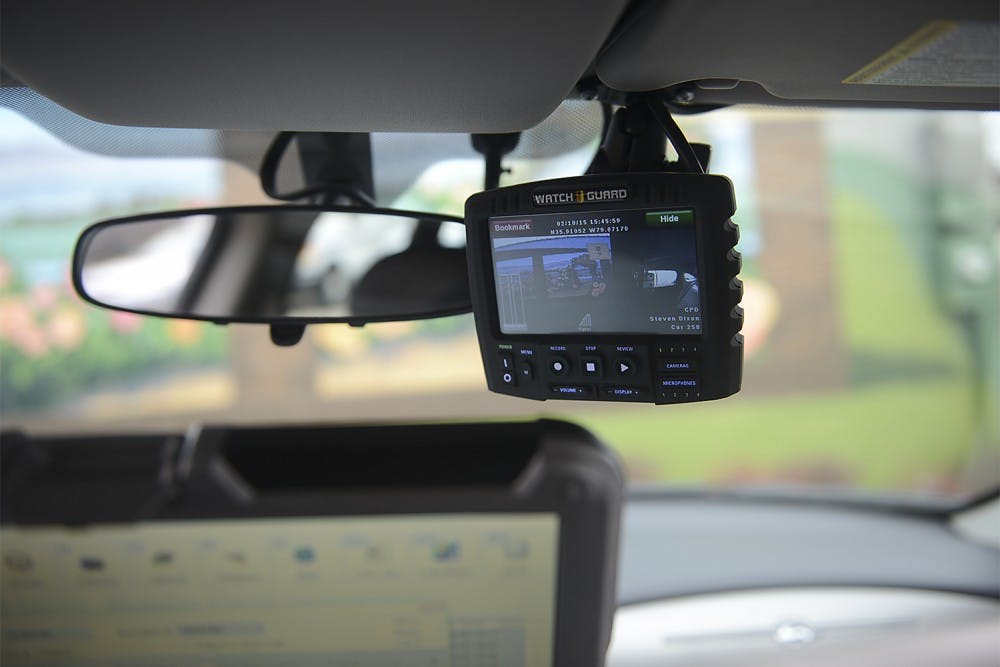Sammy Slade, a member of Carrboro’s Board of Aldermen, said body camera testing and policy development is a process that should be carefully analyzed.
“In the rush to get them, there are a lot of things we need to look at,” he said. “We just want to go slow and do it the right way, given that there isn’t much practice on it.”
Slade said the town will look into providing money for the body cameras when the town’s budget is finalized in June.
“People in the community recognize the value and how it can change the way in which investigation happens,” he said.
Mecimore said the implementation of body cameras in Chapel Hill is also dependent on how much they cost and if there is room in the budget.
Carrboro currently uses three in-vehicle cameras, and the department is in the process of purchasing five more, Atack said.
Chapel Hill has cameras for all front-line vehicles, which are those vehicles used by patrol officers.
Both policies address recording procedures and the management, retention and review of the recordings.
Where the two policies differ is on data retention. According to Carrboro’s in-car camera policy, the duration of storage is dependent on the classification of the incident. All video recorded will be stored for at least 30 days. Recordings of incidents like vehicle or foot pursuits or any use of force will be stored for at least 180 days.
Mecimore said Chapel Hill stores the recordings until the case in question is fully investigated. All video recorded will be kept for at least 90 days and video of cases involving a pursuit will be kept for at least three years.
Isaac Unah, associate professor of political science at UNC, said body cameras minimize the likelihood that police officers will use force when responding to an incident.
“It’s a constraint on both a citizen’s ability to lie to law enforcement officers and also a restraint on police officers to not use force,” he said.
To get the day's news and headlines in your inbox each morning, sign up for our email newsletters.
Unah said recordings would be most beneficial in any case where there is an altercation between an officer and a resident because they show what truly happened.
“Generally speaking, technology is, in fact, improving law enforcement in very significant ways,” Unah said.
Video recording by police officers does not infringe on residents’ rights because this video recording occurs in the public domain, he said.
“I can record you without you knowing, and if I give it to a law enforcement officer, it would stand up in court,” he said.
Under North Carolina law, Unah said only one of the parties is required to consent to the video recording. Officers are not required to tell drivers they are being recorded when they are pulled over.
“If a police officer has to tell you you’re being recorded, I wonder if you would be likely to be more truthful,” he said. “You wouldn’t say anything that would self-incriminate you.”
Damon Seils, a member of the Carrboro Board of Aldermen, said body cameras can’t solve every problem, but he fully supports their implementation.
“I think police cameras can present some tensions for the benefits they provide and the risks they have on civil liberties, and it’s important to develop a good policy that is beneficial to both parties,” he said.
city@dailytarheel.com



